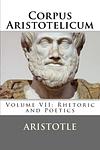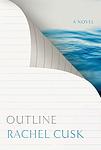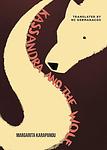The Greatest "Athens" Books of All Time
Click to learn how this list is calculated.
This list represents a comprehensive and trusted collection of the greatest books. Developed through a specialized algorithm, it brings together 284 'best of' book lists to form a definitive guide to the world's most acclaimed books. For those interested in how these books are chosen, additional details can be found on the rankings page.
Genres
Countries
Date Range
Reading Statistics
Click the button below to see how many of these books you've read!
Download
If you're interested in downloading this list as a CSV file for use in a spreadsheet application, you can easily do so by clicking the button below. Please note that to ensure a manageable file size and faster download, the CSV will include details for only the first 500 books.
Download-
1. The Republic by Plato
"The Republic" is a philosophical text that explores the concepts of justice, order, and character within the context of a just city-state and a just individual. It presents the idea of a utopian society ruled by philosopher-kings, who are the most wise and just. The dialogue also delves into theories of education, the nature of reality, and the role of the philosopher in society. It is a fundamental work in Western philosophy and political theory.
-
2. Oresteia by Aeschylus
"Oresteia" is a trilogy of Greek tragedies that tells the story of the House of Atreus. It begins with King Agamemnon's return from the Trojan War and his subsequent murder by his wife, Clytemnestra, and her lover, Aegisthus. The second play focuses on the revenge of their son, Orestes, who kills his mother and her lover to avenge his father's death. The final play deals with the trial of Orestes by the gods for the crime of matricide, resulting in his acquittal and the end of the curse on the House of Atreus. The trilogy explores themes of justice, vengeance, and the intervention of the gods in human affairs.
-
3. The Complete Works of Plato by Plato
This comprehensive collection compiles the philosophical works of an influential Classical Greek philosopher. The book includes his dialogues, letters, and philosophical musings, exploring topics such as justice, beauty, truth, mathematics, politics, love, and virtue. The philosopher's ideas, including the theory of forms, the allegory of the cave, and the philosopher king, have had a profound impact on Western thought and continue to be studied and debated in modern philosophical and academic circles.
-
4. Lysistrata by Aristophanes
"Lysistrata" is a comedic play set in ancient Greece, where the women of Athens, led by the eponymous character, decide to withhold sexual privileges from their husbands and lovers in order to force them to negotiate a peaceful end to the Peloponnesian War. Along with the women of Sparta, they seize the Acropolis and the treasury, and through their non-violent resistance, they manage to bring about a reconciliation between the warring states. The play is a humorous exploration of gender roles and the power of passive resistance.
-
5. The Nicomachean Ethics by Aristotle
This philosophical work focuses on the concept of ethics, specifically virtue ethics, and how it relates to a person's character and happiness. The author argues that happiness is the highest good and the end goal of life, and that it is achieved not through pleasure, but through virtuous actions. The book also explores the nature of practical reasoning, the different kinds of virtues, the importance of friendship, and the role of luck in human welfare.
-
6. The History of the Peloponnesian War by Thucydides
This book is a historical account of the Peloponnesian War between the city-states of Athens and Sparta in ancient Greece. The author, an Athenian general, provides a detailed narrative of the war, its causes, and its consequences, offering valuable insights into the political and social dynamics of the time. The work is considered a pioneering piece in the field of history due to its rigorous methodology and critical analysis of events.
-
7. The Birds by Aristophanes
This ancient Greek comedy play revolves around two men who are fed up with the problems of human society and decide to create a utopian city in the clouds with the help of birds. Their city, 'Cloudcuckooland', becomes popular and attracts gods and humans alike, leading to a series of humorous and satirical events. The play is a satire on political and social life in Athens, poking fun at its democracy, bureaucracy, and warfare.
-
8. Corpus Aristotelicum by Aristotle
The "Corpus Aristotelicum" is a collection of texts by an ancient Greek philosopher, providing an extensive exploration of numerous fields of knowledge, such as metaphysics, ethics, logic, politics, biology, and poetry. These works have been instrumental in shaping Western philosophy and have had a profound influence on a wide range of subjects, including science, theology, and politics. The collection is known for its systematic and logical approach, and for its groundbreaking ideas that continue to stimulate intellectual discourse.
-
9. Symposium by Plato
In "Symposium", a group of notable men including philosophers, playwrights, and politicians gather at a banquet and decide to each give a speech in praise of the god of love. Each speech presents a different perspective on love, ranging from the purely physical to the spiritual. The dialogue culminates with the speech of Socrates, who presents a philosophical view of love as a means of ascending to contemplation of the divine.
-
10. Apology by Plato
This philosophical text is a dialogue of Socrates' defense in 399 BC against the charges of 'corrupting the young, and by not believing in the gods in whom the city believes, but in other daimonia that are novel.' The dialogue is Socrates' defense at his trial and is his final public statement before his execution. In it, he discusses the moral and philosophical justification for his actions and beliefs, ultimately leading to his conviction and death.
-
11. Phaedo by Plato
"Phaedo" is a philosophical dialogue that takes place in ancient Greece, where the main character, a philosopher, is awaiting his execution. The story is a discussion on the nature of the afterlife, the immortality of the soul, and the theory of forms. The philosopher argues that the soul is immortal and that we should not fear death. He also discusses his theory of forms, stating that the world we perceive is merely a shadow of the true world of forms. The dialogue ends with the philosopher calmly accepting his fate, illustrating his belief in the immortality of the soul.
-
12. The Clouds by Aristophanes
"The Clouds" is a satirical play that critiques the intellectual and moral corruption of Athenian society by focusing on a father-son relationship. The father, in an effort to evade debt, sends his son to a school of sophistry to learn the art of manipulating language and logic to win arguments. The story explores themes of education, morality, and the conflict between traditional and modern values. The play is well-known for its critical portrayal of Socrates as a sophist and its comedic elements.
-
13. Z by Vassilis Vassilikos
"Z" is a political novel that explores the events surrounding the assassination of a prominent leftist politician in Greece. The story delves into the corruption and violence that pervades the government, with the narrative alternating between the perspectives of the victim, the assassins, the investigators, and the government officials involved. The novel is a critique of political tyranny and an exploration of the struggle for justice in a corrupt system.
-
14. Outline by Rachel Cusk
"Outline" is a novel that follows the story of a woman who travels to Athens to teach a writing seminar and engages in a series of conversations with various people she encounters. These include fellow authors, students, and locals, each of whom share intimate details of their lives, allowing the protagonist to reflect on her own experiences and emotions. The book explores themes of identity, storytelling, and the complexities of human relationships.
-
15. Crito by Plato
"Crito" is a philosophical dialogue where the main character, a renowned philosopher, is in prison awaiting execution and is visited by his friend, Crito, who urges him to escape. The philosopher argues that since the laws of Athens have given him life, education, and many other benefits, it would be unjust for him to break those laws by escaping. The dialogue explores themes of justice, law, obligation, and the social contract.
-
16. Euthyphro by Plato
"Euthyphro" is a philosophical dialogue that takes place in the weeks leading up to the trial of Socrates, where Socrates and Euthyphro engage in a conversation about the nature of piety. The dialogue begins with Socrates questioning Euthyphro about his decision to prosecute his own father for the murder of a slave. This leads to a discussion about what is considered holy and the nature of the gods. Despite their lengthy conversation, the two philosophers never arrive at a definitive answer, leaving the question of what constitutes true piety unresolved.
-
17. Phaedrus by Plato
Phaedrus is a Socratic dialogue that discusses topics such as love, the nature of the soul, and the art of rhetoric. The narrative begins with a myth about the chariot of the soul, then moves on to a discussion about the nature of love, particularly focusing on the concept of divine madness. The dialogue then transitions into a discussion about rhetoric and writing, debating the merits and pitfalls of both. The dialogue concludes with a critique of the art of rhetoric, arguing that true rhetoric must be based on truth and knowledge rather than manipulation and deceit.
-
18. Metaphysics by Aristotle
"Metaphysics" is a philosophical work that delves into the fundamental nature of reality, including the relationship between matter and substance, potentiality and actuality, form and matter, existence and essence, and the underlying principles of being. It also explores the concept of 'first philosophy' or 'wisdom', and the existence of God as an unmoved mover. The book is a profound exploration of ontology, causality, and the abstract concepts of being and knowing.
-
19. The Balkan Trilogy by Olivia Manning
The narrative follows a young British couple, Harriet and Guy Pringle, as they navigate the tumultuous landscape of Eastern Europe during the early years of World War II. Set against the backdrop of the Balkans, the trilogy paints a vivid picture of the couple's experiences in Romania and Greece, where they encounter a diverse cast of characters, from diplomats and soldiers to refugees and spies. As the war encroaches on their lives, their marriage is tested by the strains of displacement, political uncertainty, and personal betrayal, offering a poignant exploration of love, loyalty, and the human spirit amidst the chaos of conflict.
-
20. Η Κερένια Κούκλα by Konstantinos Christomanos
This book is a poignant exploration of love, obsession, and the blurred lines between reality and fantasy. Set against the backdrop of 19th-century Europe, it tells the story of a man who becomes infatuated with a wax figure, treating it as a living entity and spiraling into madness. The narrative delves deep into the protagonist's psyche, examining the intensity of his emotions and the tragic consequences of his inability to distinguish between the animate and inanimate. Through elegant prose and a haunting atmosphere, the story offers a profound commentary on the nature of love and the dangers of losing oneself in the pursuit of an unattainable ideal.
-
21. Difficult Nights by Melpo Axioti
This book is a poignant exploration of human emotions and experiences, delving into the depths of despair, love, and the quest for meaning in a tumultuous world. Through a series of interconnected stories, the narrative weaves together the lives of various characters, each struggling with their own inner turmoil and societal constraints. Set against the backdrop of early 20th-century Europe, the book captures the essence of the human condition, portraying the complex interplay between personal desires and the harsh realities of life. With its rich, lyrical prose, the novel invites readers to reflect on the nature of difficulty, the nights of the soul we all must navigate, and the glimmers of hope that sustain us through our darkest hours.
-
22. Η Χαμένη Άνοιξη by Stratis Tsirkas
This novel unfolds in the turbulent era of World War II, exploring the lives of individuals caught in the whirlwind of global conflict and personal turmoil. Set against the backdrop of Alexandria, a melting pot of cultures and nationalities, the narrative delves into the complexities of human relationships, political intrigue, and the quest for identity amidst the chaos of war. Through the eyes of its diverse characters, the story captures the essence of a lost spring, symbolizing both the literal and metaphorical loss experienced by those living through the war and its aftermath. The novel is a poignant reflection on the cost of conflict and the enduring hope for renewal and peace.
-
23. Drifting Cities by Stratis Tsirkas
Set against the backdrop of World War II and the subsequent civil war in Greece, this novel weaves together the lives of a diverse group of characters who find themselves in Jerusalem, Cairo, and Alexandria. Through their interconnected stories, the narrative explores themes of identity, displacement, and the quest for personal and political freedom. The cities, each with their own unique atmosphere and challenges, serve as more than mere settings; they are integral to the characters' experiences, reflecting the broader historical and cultural shifts of the mid-20th century. As these individuals navigate love, betrayal, and the struggle for a sense of belonging, the book offers a rich tapestry of human resilience and the complexities of home in times of turmoil.
-
24. Το Τρίτο Στεφάνι by Kostas Taktsis
This novel is a poignant exploration of the complexities of love, societal norms, and personal identity in post-war Greece. Through the eyes of its protagonist, a young man navigating his sexual identity amidst the conservative and often oppressive societal expectations of the time, the narrative delves into themes of love, loss, and the search for personal freedom. Set against the backdrop of Athens in the mid-20th century, the story weaves together the protagonist's intimate experiences with broader social and political changes, offering a deeply human and moving portrayal of the struggle for self-acceptance and the courage to live authentically.
-
25. Kassandra And The Wolf by Margarita Karapanou
This novel presents a surreal and disturbing journey through the eyes of a six-year-old girl named Kassandra. Through fragmented, dreamlike episodes, the narrative delves into her experiences of violence, sexuality, and the complexities of her inner world. The story oscillates between reality and fantasy, revealing the dark and often perplexing aspects of childhood and the process of coming of age. The protagonist's interactions with her surroundings and the people in her life are depicted with a stark, unsettling vividness, challenging the reader's perceptions of innocence and the nature of reality itself. This work is a provocative exploration of the darker sides of human nature and the intricacies of a child's imagination.
Reading Statistics
Click the button below to see how many of these books you've read!
Download
If you're interested in downloading this list as a CSV file for use in a spreadsheet application, you can easily do so by clicking the button below. Please note that to ensure a manageable file size and faster download, the CSV will include details for only the first 500 books.
Download




















